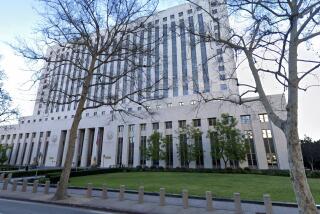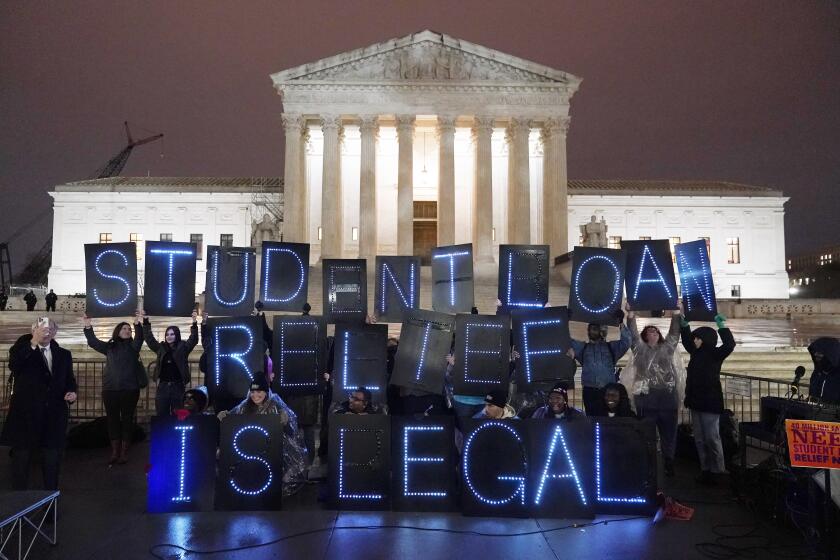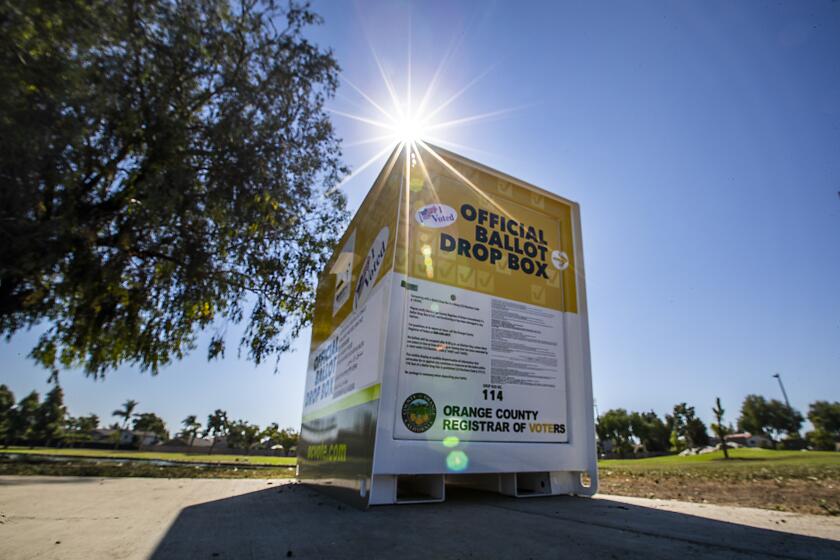UC Overbilled U.S. for Research Staff, Federal Probe Finds
The University of California has billed the federal government for millions of dollars in excessive compensation for graduate students working on government research projects during the last three years, the General Accounting Office has concluded.
By paying graduate students higher wages than other qualified researchers would receive, UC schools have overcharged the government by about $20 million since 1996--about 10% of the approximately $200 million in reimbursed compensation for researchers, according to the unpublished report, a copy of which was obtained by The Times.
In many cases, the report said, UC schools paid graduate students assigned to federal projects more than it would pay researchers who had already earned doctoral degrees. The UC system then passed the higher costs on to taxpayers--a conclusion that the university disputes.
“This compensation scheme is a misuse of government funds,” said Rep. Thomas J. Bliley Jr. (R-Va.), who called for the investigation a year ago as chairman of the House Commerce Committee. The General Accounting Office is the investigative arm of Congress.
“It is a disturbing example of how weak guidance in federal programs can lead to waste and abuse by the recipients of those programs,” Bliley said, calling on the government to tighten and clarify the rules governing how researchers’ compensation is charged against federal grants.
Christopher Patty, a UC attorney, defended the university’s actions as consistent with federal guidelines and said that flaws in the analysis grossly exaggerated the amount of questionable compensation. He said that UC’s system of charging was spelled out in its grant contracts and that he was unaware of any federal agency challenging it.
Moreover, Patty said, none of the original allegations of fraud and misrepresentation that triggered the inquiry were supported in the report.
At the heart of the controversy is the complex system under which federal agencies such as the National Institutes of Health and the Department of Health and Human Services contract with universities across the country to carry out research projects. Schools are permitted to charge the government for compensation paid to researchers who work on the projects.
But the question of what can be charged is governed by complex rules, which even Patty conceded could be subject to varying interpretations.
One allegation, that the university had broken federal tax rules by failing to treat compensation of researchers as taxable income, was rejected by the Internal Revenue Service in a letter to the GAO.
Without taking up the specifics of the UC case, the IRS said that regulations governing research grants do not necessarily govern tax liability and that, in effect, the university was not making misrepresentations under federal tax law.
Also, the report did not confirm earlier suggestions that compensation of graduate researchers was not actually tied to work on specific projects, as required by federal rules, but was instead a form of financial aid to graduate students.
In addition to direct wages, many UC schools waive tuition and fees for graduate students involved with federal research projects as part of their compensation. These costs are passed along to taxpayers--including the higher fees and tuition paid by foreign and nonresident students, who constitute a large share of UC’s graduate researchers.
Using nonresident students has the effect of raising the cost of research to taxpayers, but Patty said the federal government always has recognized that there is an education component to its research grants and that such work should “be open to the brightest minds, from wherever they come.”
Under federal rules, graduate students cannot be paid more than researchers who have already earned doctorates would receive for the same work on federal projects. Compensation also is subject to a ceiling specified by the National Institutes of Health.
Questions about the way the university charges for government research projects were first reported by The Times last year and are the subject of a whistle-blower lawsuit in federal district court in California.
The GAO examined UC records for graduate student reimbursement from 1995 to 1998.
More to Read
Sign up for Essential California
The most important California stories and recommendations in your inbox every morning.
You may occasionally receive promotional content from the Los Angeles Times.






